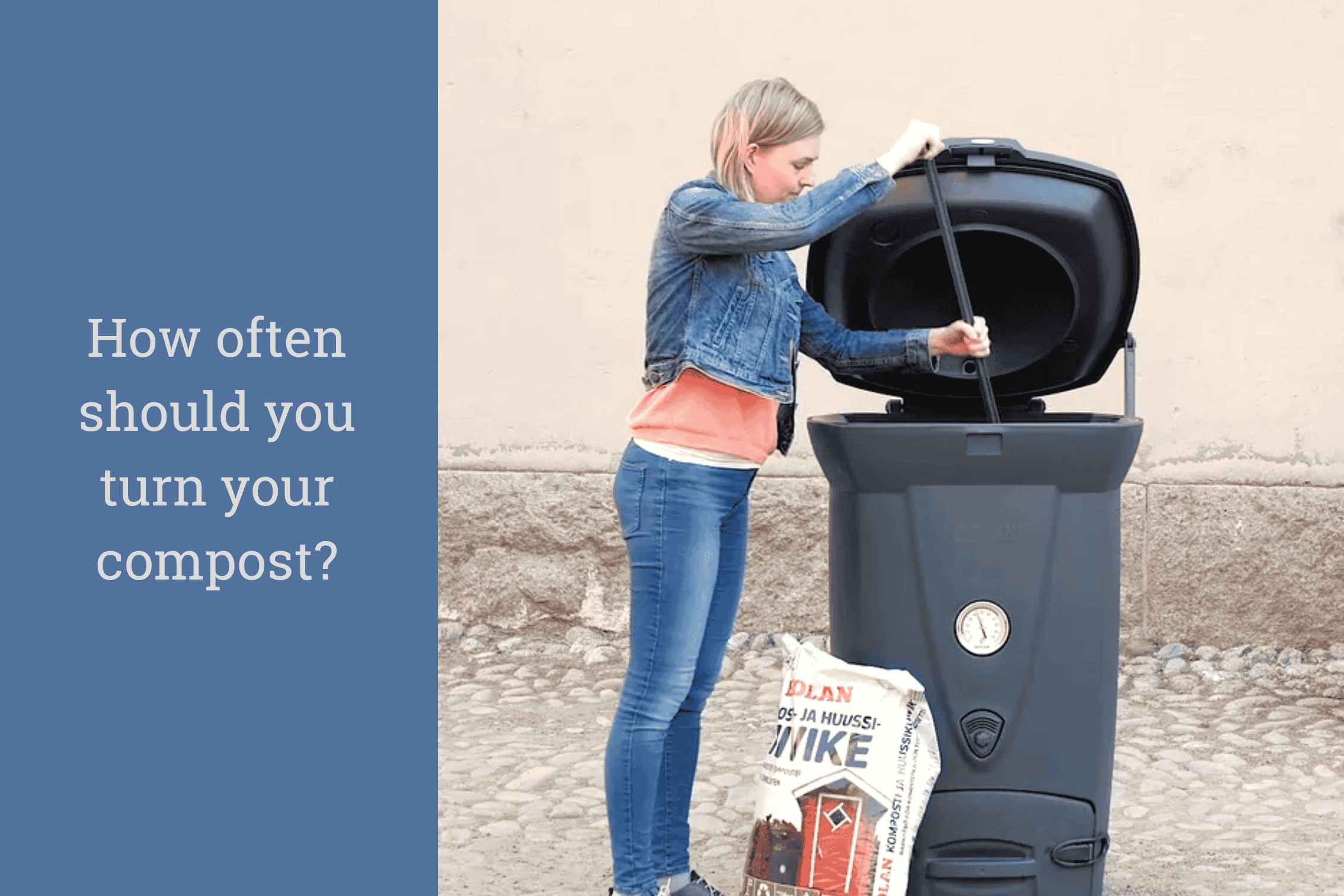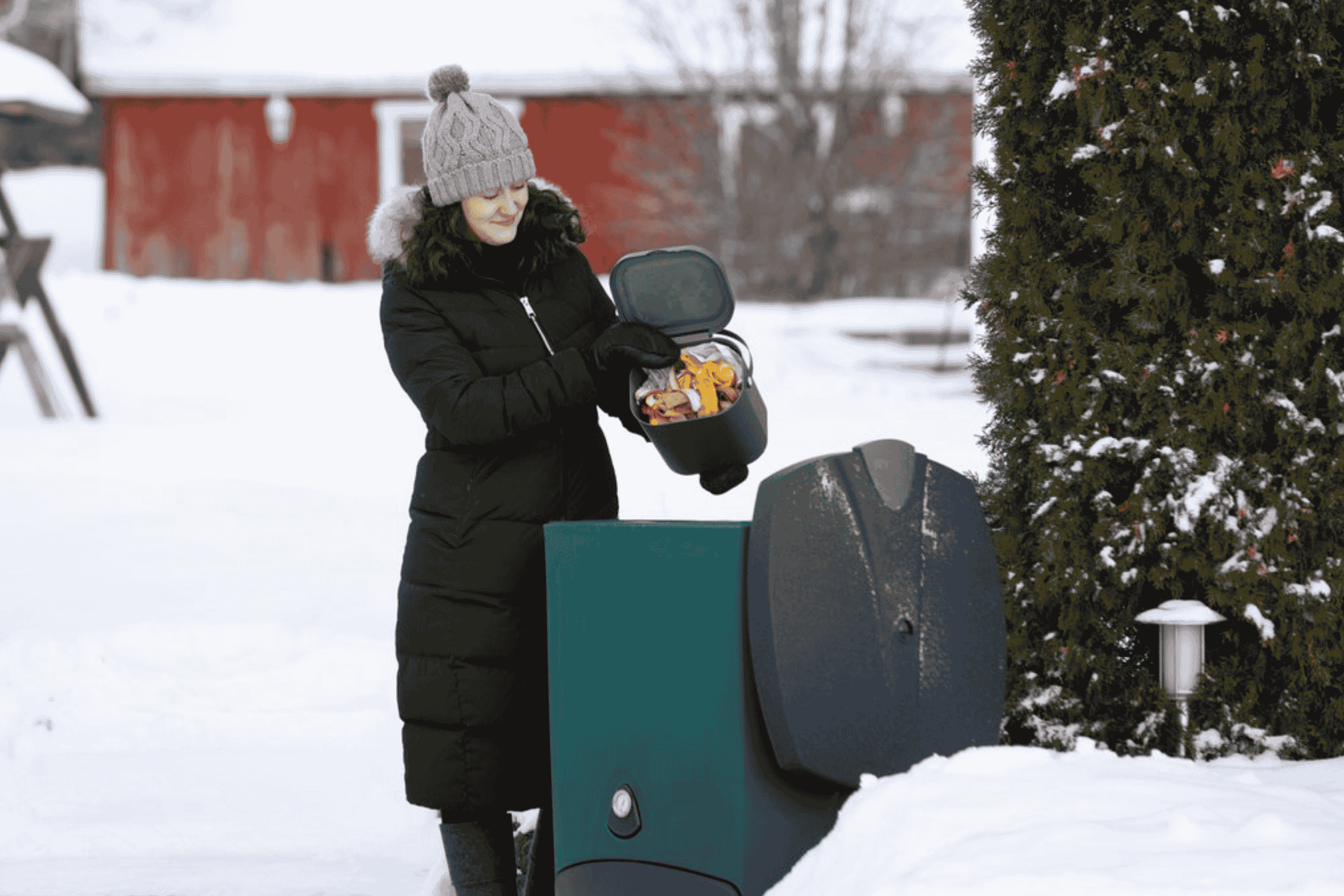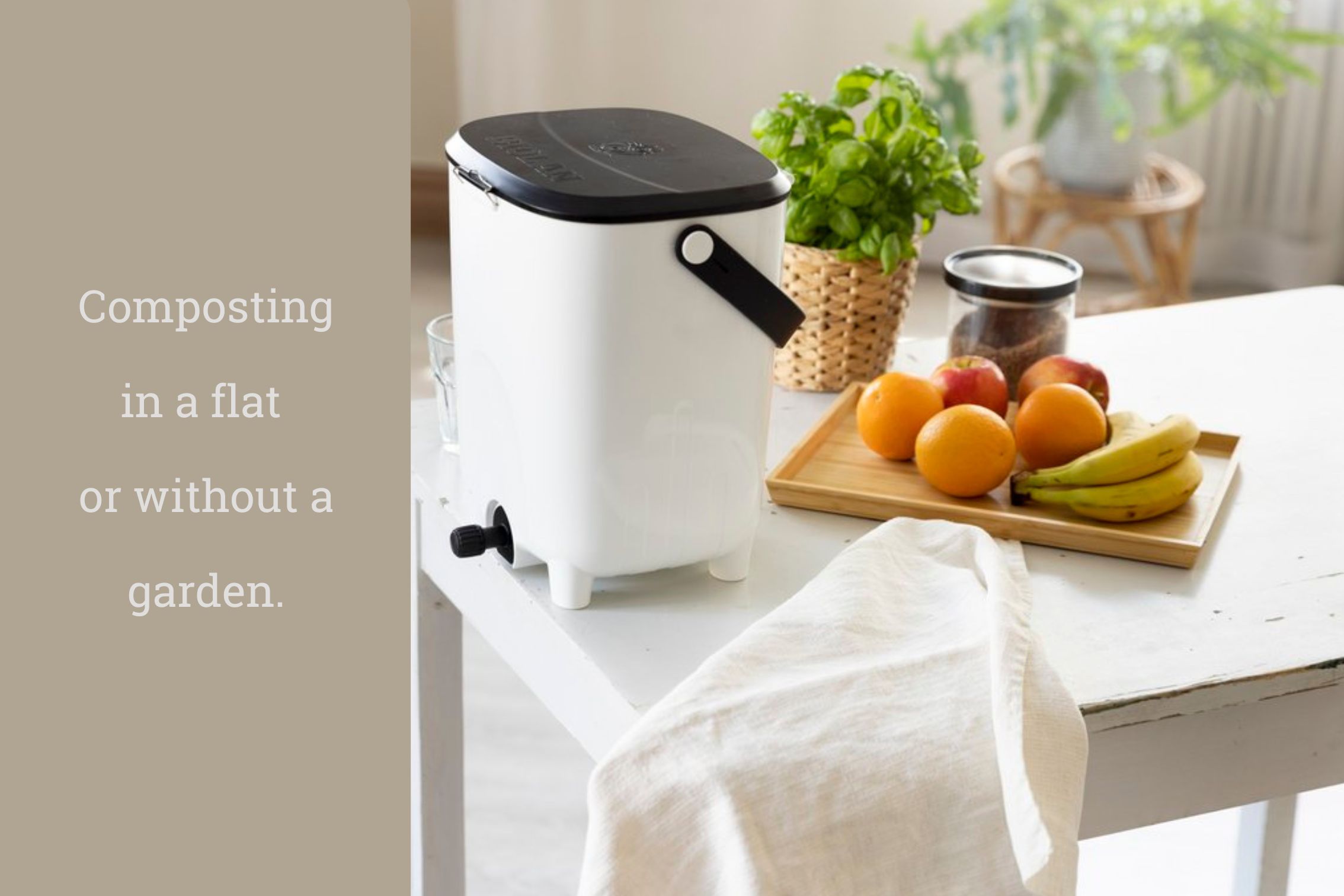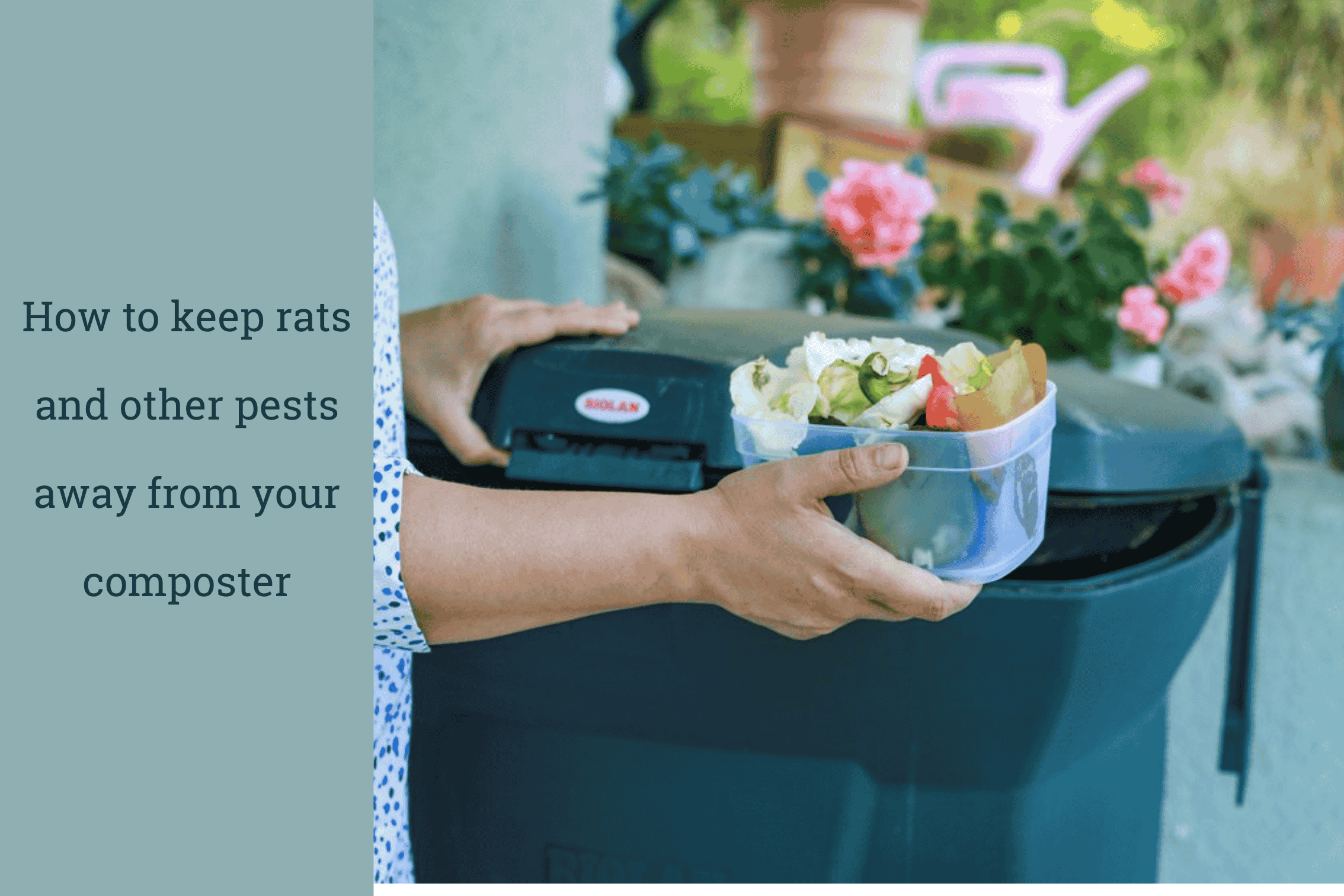
Do I Need to Turn the Compost? How Often Should I Do It?
Find out how often to turn your compost, why it matters, and simple tips to boost breakdown and reduce smells in your garden bin.
The simple truth about turning your compost
If you're just getting started with composting, one piece of advice you’ve probably come across is that you need to “turn your compost regularly.”
But what does that actually mean? Why is it important? How often do you really need to do it and how long does it take?
In this blog, we’re breaking down the role of turning your compost and giving you practical, no-fuss guidance that works for UK gardens - big or small.
Why Turn Compost?
Turning compost doesn’t mean mixing from top to bottom as this can spoil the delicate layers of decomposition already happening, and could mean a lot of work. Essentially there are 3 stages of composting:
The Mesophilic phase (which lasts about 3 days)
The top layer where you add your green and brown waste (and bulking material). Within the Biolan Quick Composter 220 Eco, this is where the turning / mixing takes place - but only within the top 30cm of materials mixed with your newly added waste and bulking material.
The Thermophilic Phase (lasting around 2 weeks to 2 months)
The middle layer where the microbes in the composter get to work breaking down materials, creating heat (and doing useful things like killing pathogens and other dangerous micro organisms).
The Maturation Phase (lasting several months)
The bottom layer (and most mature layer) can be used as top soil after approximately 3 months or as mature compost, after around 12 months.
Mixing the contents of your bin or compost pile is a means to introduce oxygen. It helps break down materials faster and more evenly by:
✅ Feeding aerobic microbes - these are the good guys that need air to thrive
✅ Preventing bad smells - less chance of anaerobic (airless) zones that cause odour problems
✅ Balancing moisture - turning helps redistribute dry and wet areas
✅ Breaking up clumps - making it easier for materials to decompose
Turning isn’t always mandatory for all composts - but it’s definitely something we would recommend if you want faster results and a healthier composting process. You may also choose to add a compost accelerator (webshop link).
How Often Should I Turn the Compost?
If you are using a Biolan Quick Composter 220 Eco or a Biolan Composter 500 - hardly at all. The specially designed air exchange system and the bulking material keep the compost mass airy. You only need to mix the top layers at intervals to a depth of 30cm.
There is an adjustable air valve in these composters which can be altered to suit hot or cold weather conditions.
If you have an open top compost pile or a container without ventilation then it makes sense to turn your compost, to stop:
· the mixture turning too moist if it is open to the elements
· the compost becoming too dense if it has no internal air vent system.
🔄 1-2 weeks is ideal if you want quick, high-quality compost.
🕐 Once a month is still beneficial and totally fine for more relaxed composting.
🌱 Not at all? That’s OK too - it just means your compost will take longer to mature (6–12 months or more) and may lead to some odours but nothing too drastic.
If you're using a traditional heap or bin, turning with a fork or aerator every couple of weeks is a good habit. But if that sounds like a hassle, there are compost tumblers on the market to make life easier.
Composting Without Turning: Is It Still Effective?
Yes - especially if you’re in no rush. This is called cold composting and it’s a great low-maintenance option.
However, it comes with a few trade-offs:
- It takes longer (6-12 months or more)
- You might get uneven breakdown
- There’s a slightly higher chance of smell or pests if you don’t balance materials carefully
If you’re composting in a small UK garden, or want compost faster, turning becomes much more valuable.
.png)
The Easy Way to Turn Compost
Turning compost doesn’t have to be hard work. Depending on your setup, here are a few easy options:
Use a Compost Aerator
These tools are designed to help you stir and mix without too much effort - like a corkscrew or claw you twist into the compost.
Go for a Compost Tumbler
Tumbler bins are a brilliant solution for smaller gardens. Just give them a spin once a week and you’re sorted. No shovelling required!
Manual Fork and Spade
If you’ve got a simple garden compost bin or open heap, a standard garden fork will do the job - just lift and mix the contents.
Biolan Quick Composter 220 eco
The Biolan Quick Composter 220 eco is a smart solution for gardeners who want efficient composting without constant faff.
🌀 Internal mixing promotes airflow
❄️ Insulated walls mean it works year-round - even in chilly UK winters
🪴 Compact enough for small gardens
🙌 Easy to use and maintain
With the right mix of greens and browns, you’ll still get great compost - even if you only turn it occasionally.
👉 Explore the Biolan range here
Layer Like a Lasagne
If turning isn’t your thing, you can help your compost along by layering materials as you add them - alternating greens (like veg scraps) with browns (like shredded cardboard or dry leaves). This helps keep airflow going naturally, especially in bins with good ventilation.
Don’t Overthink It!
Yes, turning your compost helps - but it’s not all or nothing. Think of it as a speed booster, not a rule book. If you’ve got time, give your bin a mix every now and then. If not, just layer well, keep an eye on the moisture, and let nature do its thing.
And remember - the right composting system makes a big difference. Whether you’re looking for something compact and easy to manage, or a full composting setup check out our composting range.
Useful Links
Blog - Can I compost During the Winter months in the UK?
Blog - How long does compost take to be ready?
Blog - What to put in a compost bin (and what to avoid)
OTHER POSTS IN THIS CATEGORY:
.png)
Duckling Barn Glamping needed off-grid, eco-friendly sanitation. A 200L composting toilet offered a waterless, odourless, sustainable solution.
.png)
The Biolan 220eco composter handles all food waste, including cooked scraps, all winter. Use bulking material for perfect, odour-free compost

Yes, you can compost in winter! Learn how to keep your bin active during the UK's cold months with tips, tools, and winter-ready composters.

Tired of smelly bins? Learn how to compost in your flat usingan indoor Bokashi bins, and turn your scraps into garden gold - even without a garden.

Find out how often to turn your compost, why it matters, and simple tips to boost breakdown and reduce smells in your garden bin.

Keep pests out of your compost bin with smart tips on what to add, how to balance materials, and ways to seal and protect your setup year-round.



